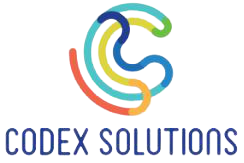EVENT DESCRIPTION
STEAM education is an approach to teaching and learning that integrates science, technology, engineering, the arts, and mathematics. The goal of STEAM education is to help students develop the skills and knowledge they need to solve real-world problems.
STEAM education is important because it prepares students for the 21st century workforce. The world is becoming increasingly technological, and STEAM skills are essential for jobs in fields such as engineering, computer science, and healthcare.
STEAM education also helps students develop critical thinking, problem-solving, and creativity skills. These are essential skills for success in any field, and they are also the skills that will help students solve the challenges of the future.
There are many ways to implement STEAM education in schools. One way is to create STEAM-focused classrooms where students can learn about science, technology, engineering, art, and math through hands-on projects. Another way is to integrate STEAM concepts into other subjects, such as English and history.
There are many benefits to STEAM education. Students who participate in STEAM programs are more likely to graduate from high school and college, and they are also more likely to get jobs in STEM fields. STEAM education can also help students develop a passion for learning and a sense of creativity.
Some of the challenges of implementing STEAM education in schools include:
- Lack of funding: STEAM education can be expensive, and many schools do not have the resources to implement it.
- Lack of teacher training: Many teachers are not trained to teach STEAM concepts.
- Lack of support from parents and community: Some parents and community members may not see the value in STEAM education.
EVENT CONTENT
- Over 37 lectures and 55.5 hours of content!
- LIVE PROJECT End to End Software Testing Training Included.
- Learn Software Testing and Automation basics from a professional trainer from your own desk.
- Information packed practical training starting from basics to advanced testing techniques.
- Best suitable for beginners to advanced level users and who learn faster when demonstrated.
- Course content designed by considering current software testing technology and the job market.
- Practical assignments at the end of every session.
- Practical learning experience with live project work and examples.

